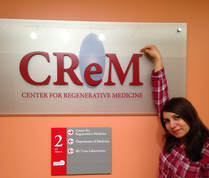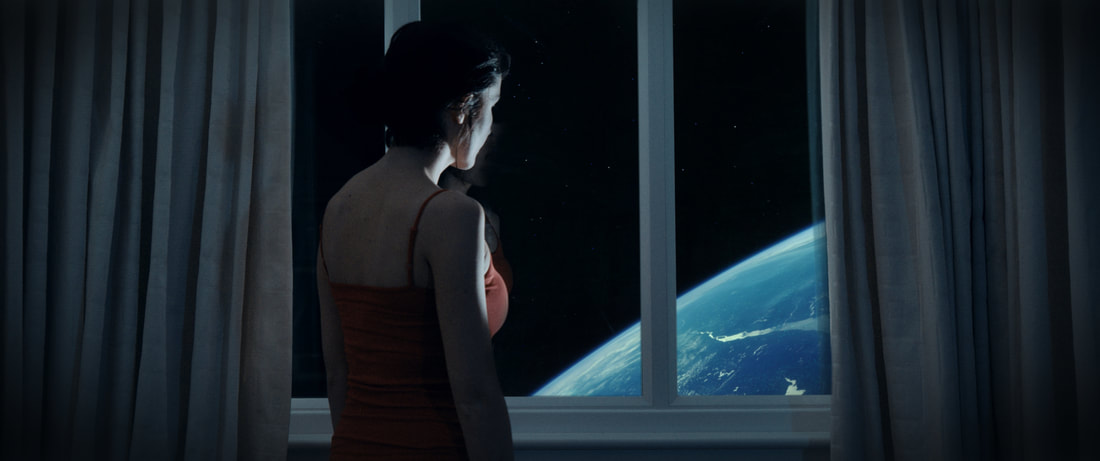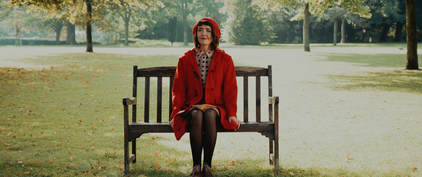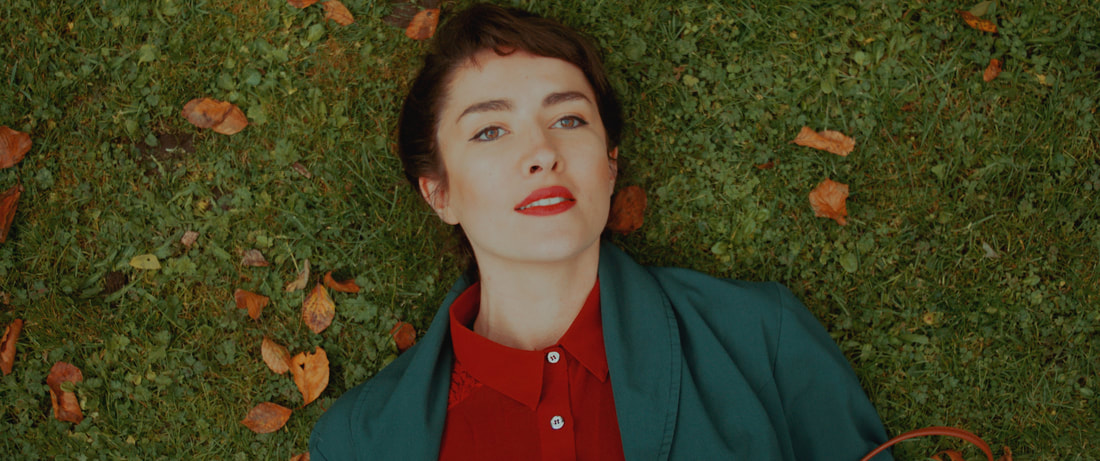|
7/24/2017 0 Comments Seat 25
By Sadaf Atarod
Disclaimer: views expressed herein are those of Nicholas Agnew and Madeleine Cooke and do not necessarily reflect the views of the author, the editorial staff, or The Scientista Foundation. If you have a career in STEM, then you most likely have made numerous sacrifices on your quest to discover or invent & ultimately build your profession as a scientist or engineer. Leaving one’s family & friends behind, is probably the greatest compromise one makes on this career journey. Thus, it was extremely interesting to hear how Seat 25 has beautifully captured the challenges that a woman undergoes when having to choose between her passion and family, and exchange her life on Earth for the wonders of the one on Mars! To find out more about this enlightening movie that has won numerous awards, read the interview with the crew. Sadaf Atarod: Can you enlighten our readers about the message of Seat 25 and how did the idea originate? Nicholas Agnew: Seat 25 is a story about a young woman called Faye who has become trapped in a life she didn’t plan for herself. She is an example of the type of person who has hopes and ambitions as a young person but suddenly finds that circumstances have dictated her choices and before she knows it she is living an unsatisfying and unfulfilling life. It’s at this point in Faye’s life that we start the story of Seat 25. She enters an extraordinary competition to win a ticket on the first manned mission to Mars. The odds against her winning are so huge, she never expects to win, but when the news arrives she has been selected she faces the most astonishing choice – does she leave her family, friends and everything she has ever known here on Earth, or does she stay and continue the life she has made for herself? The idea for Seat 25 stemmed from a brief that Madeleine and I gave ourselves. We wanted to write an intimate, character driven story set against a high concept science fiction backdrop. We also wanted to make it as relatable as possible and since a journey to Mars is getting closer by the day it was a compelling idea. As well as this, it was essential that our story was centered around a strong female lead. The film industry is far from gender neutral, and it is important to us as filmmakers to make sure women are properly represented in our films. Madeleine Cooke: Seat 25 is a story about an ordinary person who comes to the realisation that they are unhappy with their somewhat mundane life and decides to make a big change. It is a film about an ordinary person choosing the extraordinary. From the outside Faye Banks appears to have it all: a loving husband, her own house, a recent job promotion and a close family. To the complete shock of all who know her, Faye enters a competition called ‘SEAT 25’, which offers a one-way ticket to Mars, which she wins! Our story follows Faye and the many people who come into her life after receiving her winning ticket to Mars. Faye ultimately has a decision to make which will change her life, one way or another, forever. Seat 25 asks the question, how far would you be willing to go to find happiness? Ultimately Seat 25 is an expression of our excitement, as screenwriters and space enthusiasts, about the real possibility of the first manned missions to Mars and how close that now feels to being a reality. SA: So why focus on a woman’s dream mission to Mars? Nicholas Agnew: The idea of humans travelling to Mars is so captivating at the moment. I wasn’t around for the lunar landings and it feels like there’s this growing excitement about space travel amongst the general public. Mars represents a new frontier for mankind and we wanted to show that even the most seemingly ordinary of people is capable of doing something truly extraordinary if they are only given the opportunity. Travel to Mars is such a huge concept, but it is tangibly close which gives a sense of reality to the story. As a woman, our lead character Faye faces her own challenges here on Earth. The world is not an equal place, but every time the human race advances itself, every time it reaches a new frontier, it has the opportunity to better itself, and the ethos behind our hypothetical mission to Mars reflects this. Madeleine Cooke: Being a woman myself I’m obviously drawn to the female perspective but the decision at the beginning of the process to make our story about a woman is certainly an expression of how important it is, we feel, to see more women in STEM roles. At the moment the proportion of roles written for women where they aren’t simply the ‘girlfriend’ or ‘wife’ is sadly very small and this is even more obvious in STEM roles; the STEM character is almost always male. I think we are all aware now that what we see affects how we feel about ourselves and each other so simply seeing more women in film and television being portrayed as strong and intelligent makes a difference to how women feel about themselves and how men feel about women. As a mother to a daughter it has become more important now than ever to feel I’m making a difference for women when I’m choosing characters and casting films. I feel that we as women owe it to other women to do our bit and little by little hopefully one day we will achieve change. SA: Is Seat 25 in any way a depiction of the challenges women face when having to choose between family versus their aspirations? Nicholas Agnew: We certainly address that issue in Seat 25. Without knowing Faye has won a ticket to Mars, her husband announces he wants children because ‘it’s the next logical step’ in their relationship. Her husband expects that she will want to stay at home with the children rather than go out to work. Interestingly, Faye’s next door neighbours illustrate the opposite situation – a stay at home Dad and a Mum that goes out to work, and a conflict that that brings. There’s certainly a feeling in the story that Faye has been pushed into the unfulfilling life we find her in, and that the main reason is because she isn’t male. Of course, there is an argument that she could have done more to help herself, been more assertive, but the fact is that women’s ambitions and skills aren’t always nurtured the way a man’s are. There are expectations placed on women, centering around family, that are very different to those placed on men. Even after he finds out that Faye has achieved the impossible and gained a place on this historic mission, her father still phones to say he is disappointed in her. She hasn’t adhered to social norms. The objectification of women as illustrations to society at large of a male’s success is a bedrock which permeates society and so often, even parents can’t seem to see through it. Madeleine Cooke: This is more obviously real for Faye as she has to choose between a life on earth where she could have a family and children, and then a life on Mars where children would be impossible. The idea of the ‘wife’ being the one that usually has to choose between family life and aspiration, over the ’husband’, is an issue we explore in SEAT 25. Faye’s husband and father, although being caring, both have these more traditional views on marriage and what it means to be a ‘good wife’. We find out during the film that Faye was persuaded by her husband Jim to give up on her personal dream of working in science over a better paid position in the council which she hates, but we don’t see him having to make any sacrifices for his aspirations. SA: This brings me to my next question, why make a movie based on science fiction & a mission to Mars? Nicholas Agnew: We both love science fiction! We knew what type of indie film we wanted to make, the kind of sentiment we wanted to communicate, and the science fiction element was the vehicle for us to tell the story. Working on a low budget informed what we were able to do right from the start, but the limitations of budget actually encourage creativity and we now have a story that no one else has told before. There are a number of films that have recently been released or will be coming out soon that are set on Mars. We didn’t have the budget to set a film on Mars, but we didn’t need to. Our story looks at the impact a mission like this might have on someone’s life before they even leave home. Madeleine Cooke: To be honest, we both are big Science Fiction fans and combined with our joint interest in space exploration, in particular the first manned mission to Mars, it seemed like the obvious choice for us to co-write a film about someone who leaves earth to start a new life on Mars. We decided to base our character on earth but we flit up to Mars throughout the film as our central character imagines what her life on Mars might be like. SA: And, why should someone enter the competition secretly? Nicholas Agnew: That’s a really good question, and there are many different reasons Faye might have kept her application a secret. We deliberately didn’t go into much detail about her reasons for keeping it to herself in the film to encourage self-reflection in our audience. Hopefully they will analyze Faye’s position and ask themselves what they might have done in her shoes. Really there are two parts to the question; why would she enter, and why would she keep it a secret? She is a 29 year old woman who works for the local council in the Human Resources department. But as a young woman, science was her passion. Maybe the process of applying was the rediscovery of that passion that had been lying dormant – the catalyst for change in her life on Earth. Or perhaps a desperate need to not forget that at one time there was more to her life than what she has now. As for keeping it secret, the odds against her winning may have meant she never even considered that winning was a possibility. And when she does win, how easy can it be to tell your husband, family and friends that you are seriously considering leaving them forever? Madeleine Cooke: Well for Faye she knew that her husband and family would not support her in her decision to apply for Seat 25. Her husband and family believe she should be having children in the near future and want her to have the life that they think she should have; basically the life that follows the social norms of our society. I wonder in reality how many of our friends and family would really support us if we won a one-way ticket to Mars? Some might think it is quite a selfish act - that you are giving up on them and your old life so completely. Also I wonder if for Faye the fact that she applied for the mission at the beginning of the film was more an expression of her feelings about herself and her life? One reckless act as a kind of cry for help maybe? This certainly changes through the course of the film as you see her desire for SEAT 25 grow and develop. SA: How did you both write the screen play & how long did it take? Nicholas Agnew: It took about six months to write the script. Once we had our concept, we both did a lot of research into real life plans for travel to Mars in order to really ground the story in reality. We spend nearly all of our time writing together and a large part of the time is spent throwing ideas around to develop a really solid story before we write a word of dialogue. Working together works so well for us. One person can come up with what they think is a great idea, but there is no one there to check it. If I have an idea, it may spark a thought in Madeleine’s head that will lead us somewhere I would never have imagined if we hadn’t been working together. Madeleine Cooke: We actually wrote it pretty quickly but the idea for Seat 25 was being cooked up for long time before that. We wrote together nearly every day for six months but only for a couple of hours or less each day. We have found that short bursts of writing, work better for unlocking creativity, than a whole day where you don’t have a time restraint. Working with Nicholas worked so well, I believe, because we know each other so well so we took turns in taking the reins, so to speak, when we needed to. It’s always great having someone who you can bounce your ideas around with, who isn’t going judge you and who you can be silly with! I think to write creatively with someone you must above all else feel safe with them. SA: Nicholas & Madeleine, can you tell us a bit more about your own careers & if you are from a science backgrounds? Nicholas Agnew: I trained as an actor in London and met Madeleine while I was at drama school. Since then I have been lucky enough to work extensively in front of the camera in both film and television. It was always an intention to move into film production and in 2015 Madeleine and I decided it was time, so we began writing Seat 25 and built our production company around it. I can’t claim to have a background in science! My interest in science has developed since leaving school. There’s something about the wonder of scientific endeavor that my teachers never seemed to be able to communicate against the backdrop of adolescence and peer pressure, although the fact that school children in the UK seem less and less inclined to inquire and discover means I have real concerns about the way young people are being educated. Madeleine Cooke: I am from an acting background first and foremost and just happen to have a love and an appreciation for science. I began acting in theatre and television after leaving drama school and soon began scriptwriting. Nicholas and I began writing together for theatre about 7 years ago but this is our first screenplay together. We started our own film production company, Lagom Pictures, in order to get Seat 25 made and currently have just finished co-writing the script for our second feature film which is another Sci-Fi about women! SA: How would you summarise the impact of SEAT 25 on women in science, girls or society in general? Nicholas Agnew and Madeleine Cooke: One of our biggest hopes is that young women who are thinking about their futures will watch Seat 25 and be inspired to follow their passions. Science is a male dominated industry and we think there is a danger that girls who are still at school or just beginning their careers will steer away from STEM subjects because they aren’t cool or they are careers for boys. We feel that film and the arts more broadly have a duty to show equality. When we make a film with a female lead we are told that it will be harder to sell because it isn’t about a man. We don’t recognize that! Half or our audience are women! And why shouldn’t there be a role model for young women? Faye is a woman who is given an opportunity to overcome a great deal of adversity and achieve the impossible, and men aren’t the only ones who find that message inspiring! We also hope it will encourage audiences to think about change, and where there may be a place for change in their own life. It has been said to us that the mission to Mars is not the important thing in Seat 25. Faye could be faced with a choice to move to another city or change her job – it’s the opportunity for change which is important. And we think that’s true. About Nicholas Agnew and Madeleine Cooke Nicholas Agnew trained as an actor and still works extensively in Film, Television and Theatre. His recent credits include The Lost City of Z, The Man Who Knew Infinity, Kingsman: The Secret Service and the television series Victoria. He is co-director of the production company Lagom Pictures. Madeleine Cooke has worked as an actress in both in television and theatre. As a writer she has co-written two theatre productions before teaming up with Nicholas Agnew to write and co-produce Seat 25. Seat 25 international awards: BEST FEATURE FILM – Birmingham Film Festival (UK) BEST FEATURE FILM & JURY PRIZE FOR FICTION – Raw Science Film Festival (Hollywood) BEST BRITISH FILM – London Film Awards (UK) BEST FILM – London Independent Film Festival (UK) BEST ACTOR (Madeleine Cooke) – London Independent Film Festival (UK) (Nominated) BEST SCREENPLAY – Widescreen Film Festival (Miami) 
About the Author
Sadaf Atarod is a Postdoctoral Associate at the Ikonomou Lab, in the Center for Regenerative Medicine (CReM), Boston University. She is enjoying her current research, investigating the biomechanical determinants of lung cell fate in pluripotent stem cells. Her research involves using stem cell biology for tissue engineering applications. Above all, she is delighted to have kick-started her career in science as a postdoc at the CReM where she is supported by experts in the field of induced pluripotent stem cells, who are true advocates of the open science movement with a strong mission in “advancing science to heal the world.” Comments? Leave them below!
0 Comments
Your comment will be posted after it is approved.
Leave a Reply. |
LIFESTYLE BLOGRead our lifestyle advice, written exclusively for pre-professional women in science and engineering. From advice about fashion, work and family balance, self, wellness, and money, we've got you covered! |
The Scientista Foundation, Inc. All Rights Reserved © 2011-2021 | Based in NY | [email protected]
The Network for Pre-Professional Women in Science and Engineering
The Scientista Foundation is a registered 501(c)(3) -- Donate!
The Network for Pre-Professional Women in Science and Engineering
The Scientista Foundation is a registered 501(c)(3) -- Donate!



